
— May 22, 2025
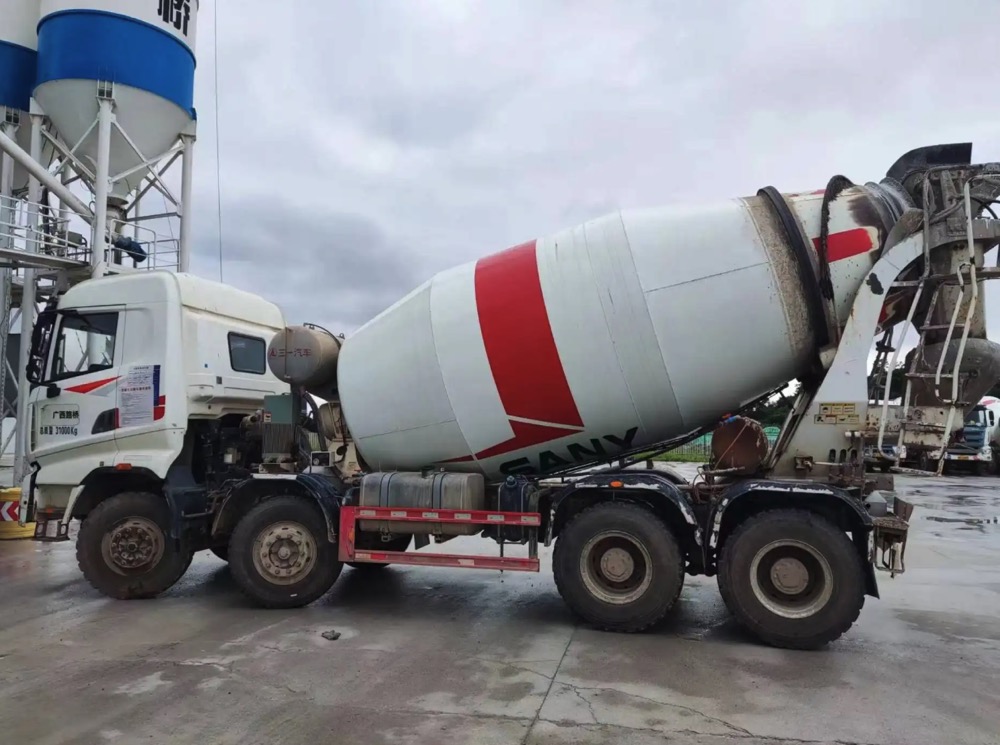
Concrete is the backbone of modern construction, and without the proper concrete mixing equipment, even the best formulas won't achieve their full potential. But did you know that not all concrete mixers are created equal? From humble portable concrete mixers to massive batching plants, the right mixer can make all the difference in your project’s outcome.
Batch concrete mixers are the most common and come in various sizes, from small mobile mixers to large industrial models. These mixers allow for specific amounts of material to be mixed at one time, ensuring consistency across batches.
Fact in numbers: On average, a batch mixer can produce around 1 to 2m3 of concrete per cycle.
Common Uses:
- Residential building projects
- Small to medium commercial constructions
- Ready-mix concrete supply
Batch mixers are popular because they provide more control over each load of concrete. This precision is crucial when working on projects requiring consistency, such as foundations, where any deviation can cause structural issues later on.
Designed for high-volume projects, continuous mixers don’t stop once they start. Key parts of a continuous mixer include the hopper, where materials are loaded, the auger or mixing screw that continuously mixes the ingredients, and the discharge chute, where the mixed concrete is released. This setup ensures a steady flow of concrete without the need for batch processing, improving efficiency on large construction sites.
Fact in numbers: Continuous mixers are often used in infrastructure projects like roads and bridges, producing more than 10m3 of concrete per hour!
Uses:
- Road paving
- Bridge construction
- Large industrial projects
For projects with extensive concrete needs, continuous mixers are a good option because they reduce downtime and ensure that a constant supply of fresh concrete is always available.
AKA truck-mounted mixers, these mobile powerhouse mix and transport concrete, with their rotating drum for mixing the concrete, the chute to discharge the concrete; the water tank for adjusting the mix consistency. Concrete mixer trucks are essential for delivering ready-mix concrete directly to construction sites.
Did You Know? CIFA, one of the oldest industry’s leaders in concrete mixing equipment, produces concrete mixer trucks for sale, and their HD series can carry up to 15m3 of concrete!
Uses:
- Ready-mix concrete delivery
- Large-scale commercial and industrial projects
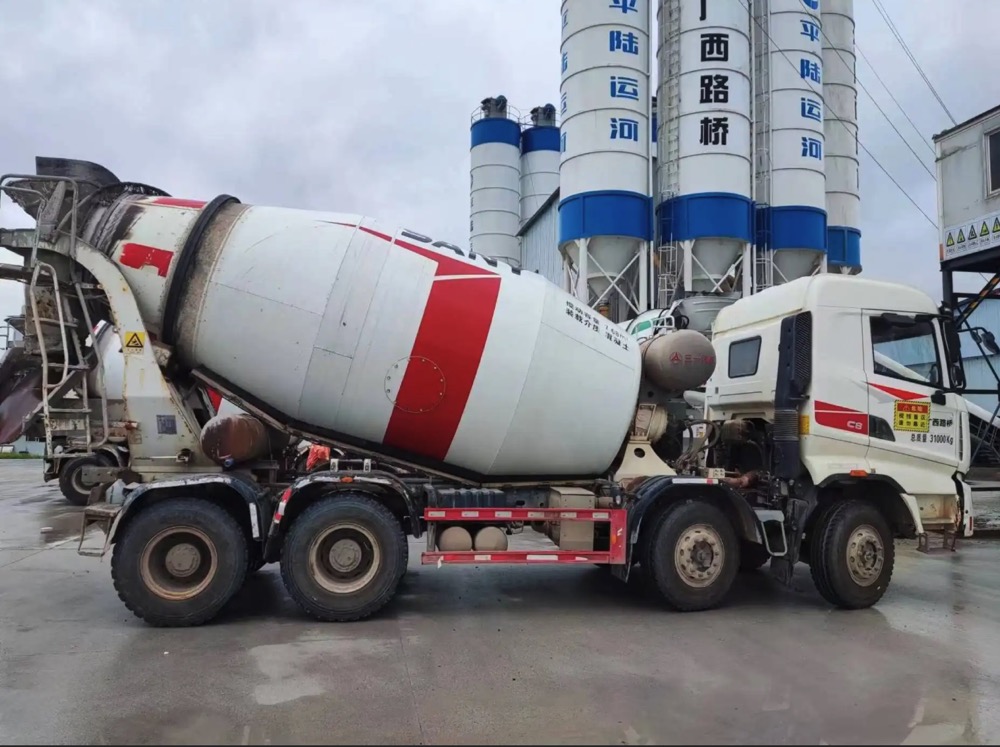
These are the most common type of mixers, consisting of a rotating drum to mix concrete. The drum’s rotation allows for even mixing, making it suitable for a wide range of construction tasks. Drum concrete mixers are typically used in smaller projects but can also be scaled up for large commercial applications.
Uses:
- Residential and commercial buildings
- Small construction sites
- General concrete mixing tasks
Drum concrete mixers are often found on construction sites where versatility is needed. They are available in both portable and stationary options, making them ideal for contractors with varying project sizes.
Pan mixers have a stationary, flat pan where mixing takes place. Multiple blades rotate inside the pan, creating a thorough and consistent mix. These mixers are excellent for creating high-quality concrete quickly and are often used in the production of precast concrete.
Quick Fact: Pan mixers can handle tough mixtures that are difficult for drum mixers, like those containing large aggregates.
Uses:
-Precast concrete manufacturing
- High-strength concrete applications
- Large-scale commercial projects
Precast concrete products, like slabs, pipes, and beams, require precision mixing, and pan mixers are specifically designed to meet these demands. Their ability to handle high-strength mixes makes them popular in industries that demand durability and long-lasting concrete products.
Known for their efficiency and fast mixing, twin-shaft mixers have two horizontal mixing shafts with blades that rotate in opposite directions. This setup provides a more thorough and faster mixing process, making them ideal for large-scale, time-sensitive projects.
Uses:
- Ready-mix concrete production
- Infrastructure projects
- Industrial concrete mixing
Twin-shaft mixers are favored by concrete producers who need to meet tight deadlines without sacrificing quality. Their design allows for faster production times, which is crucial when working on time-sensitive projects like highways or large-scale developments.
Volumetric mixers are essentially mobile concrete batching plants. They measure and mix concrete on-site, allowing for fresh, on-demand concrete. With this flexibility, volumetric mixers are a great choice for projects with fluctuating concrete requirements.
Did You Know? Volumetric mixers can be set up to mix different types of concrete in one operation, perfect for projects needing multiple mixes in a short time.
Uses:
- On-demand concrete supply
- Remote construction sites
- Projects with varying concrete needs
Volumetric concrete mixers offer unparalleled flexibility, especially in remote or hard-to-access locations where having a ready supply of concrete is challenging, as they can eliminate the need for central batching plants, providing a cost-effective solution for contractors.
Concrete production is notorious for its environmental impact, primarily due to the CO2 emissions associated with cement production. However, modern concrete mixing equipment is helping mitigate some of these effects.
Electric and hybrid mixers: these machines produce significantly fewer emissions than their diesel counterparts.
Recycled concrete use: some mixers are equipped to handle mixes containing recycled concrete aggregates, which reduces the need for virgin materials.
Water conservation: innovations in water recycling within mixers allow for less water consumption during the concrete mixing process.
In recent years, manufacturers have focused on enhancing the technology behind concrete mixing equipment, making them more efficient, eco-friendly, and easier to operate. Some innovations include:
Automated concrete mixers: Many new models come equipped with automation features, allowing for better control over the mixing process, ensuring consistent results every time.
Eco-friendly options: Electric-powered mixers and hybrid models are gaining popularity as construction companies look for ways to reduce their carbon footprint.
Self-cleaning systems: One of the biggest challenges with concrete mixers is cleaning them. Self-cleaning systems are a new feature that reduces maintenance time, increasing efficiency.
As the authorized dealer for the Italian made CIFA concrete machines in the UAE and Oman, we provide top-tier concrete solutions known for their performance, durability, and innovation, offering a range of concrete equipment for sale to meet the diverse needs of the construction industry.
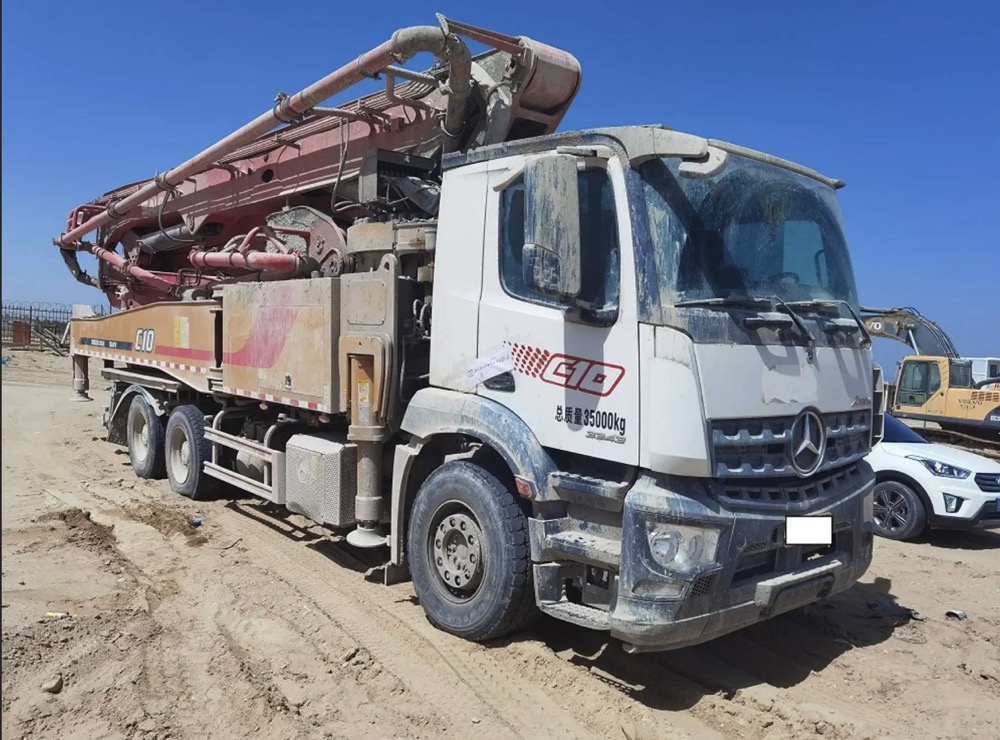
1- Mixer Pump Trucks
Mixer pump trucks are a versatile solution, combining the functions of both a mixer and a pump.
Cifa MK32L mixer pump truck: featuring 9.5 m³ drum capacity and 31.2 meter boom length
2- Concrete Pump Trucks
For projects requiring the movement of concrete over long distances or to elevated areas, our concrete pump trucks for sale offer unmatched performance.
Cifa K56L concrete pump truck: offering pumping capacity of of up to 180 m³/h with its 56 meter boom.
3- Concrete Mixer Trucks
Looking for a reliable concrete mixer truck for sale? Al Marwan offers a selection of high-quality concrete mixer trucks from CIFA and other global brands, capable of delivering large volumes of ready-mix concrete efficiently.
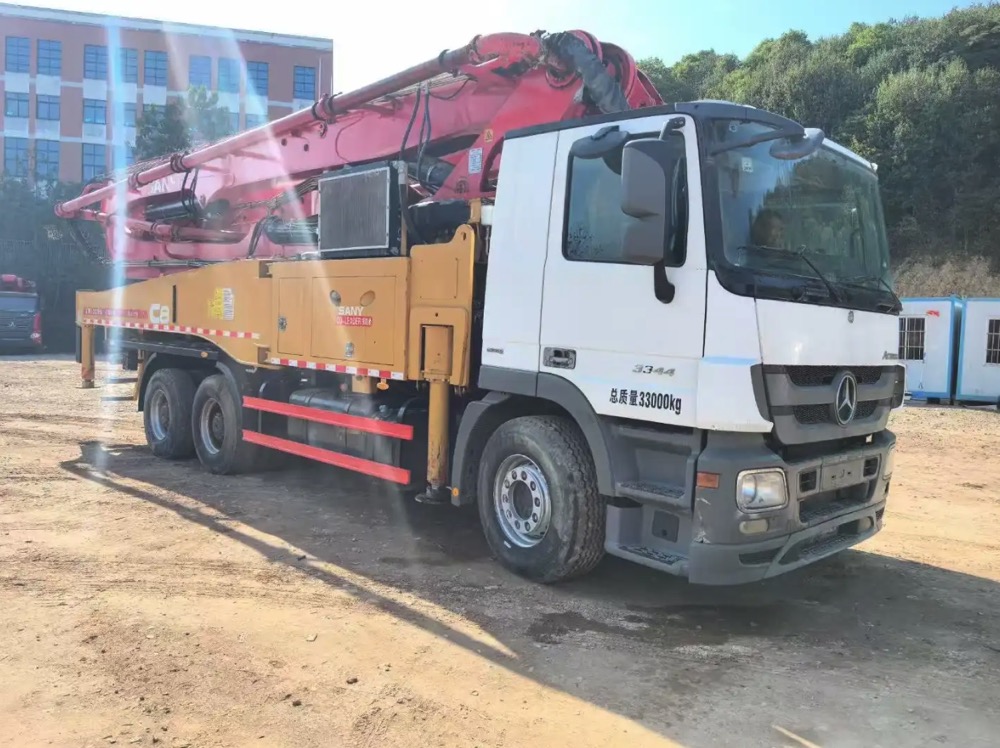
Cifa HD series concrete mixer trucks features versatile drum capacities from 7 to 15 m³.
In addition to CIFA standard lineup, Al Marwan also offers a range of electric concrete equipment, an eco-friendly solution that delivers numerous environmental benefits to help reduce carbon emissions, contributing to a greener construction process.
Curious to know more? We've gathered the most frequently asked questions about the different types of concrete mixers.
A cement mixer is technically the same as a concrete mixer. While some people use "cement mixer" to refer to small units, both terms describe machines that mix cement, aggregates, and water to create concrete.
A concrete mixer is used to blend cement, aggregates, and water to produce concrete, which is essential for most construction projects, from building foundations to highways.
The three main types are batch mixers, continuous mixers, and truck-mounted mixers.
Consider your project size, the volume of concrete required, and whether you need portability or a stationary unit. Don’t forget to assess the mixer’s power source and durability.
Mixers can be noisy, require regular maintenance, and larger models consume significant power.
For small projects, a 2-3 cubic meter capacity mixer should suffice. For larger, commercial jobs, consider mixers with a capacity of 6 cubic meters or more.
If your project requires precise batches of concrete with consistent properties, opt for a batch mixer. Continuous mixers are better for large-scale operations where you need a constant flow of concrete, such as in infrastructure projects like roads or bridges.
Portable concrete mixers are ideal for smaller projects and remote locations. They provide flexibility, as you can easily move them around the job site, and they are cost-effective for projects that don’t require large volumes of concrete at once. Additionally, they allow for on-site mixing, ensuring fresh concrete with minimal waste.
Yes, there are eco-friendly options, such as electric mixers and hybrid mixers, which produce fewer emissions compared to traditional diesel-powered mixers. Additionally, some modern mixers come with water recycling features that reduce water consumption during the mixing process, contributing to more sustainable construction practices.
The lifespan of a concrete mixer depends on its usage, the materials it's mixing, and how well it is maintained. With regular care, most high-quality concrete mixers can last 5 to 10 years, with some heavy-duty models lasting even longer under proper conditions.
Yes, twin-shaft mixers are highly efficient at mixing high-strength concrete. The dual horizontal shafts ensure a faster and more thorough mix, which is crucial when working with stiff or dense concrete mixes.
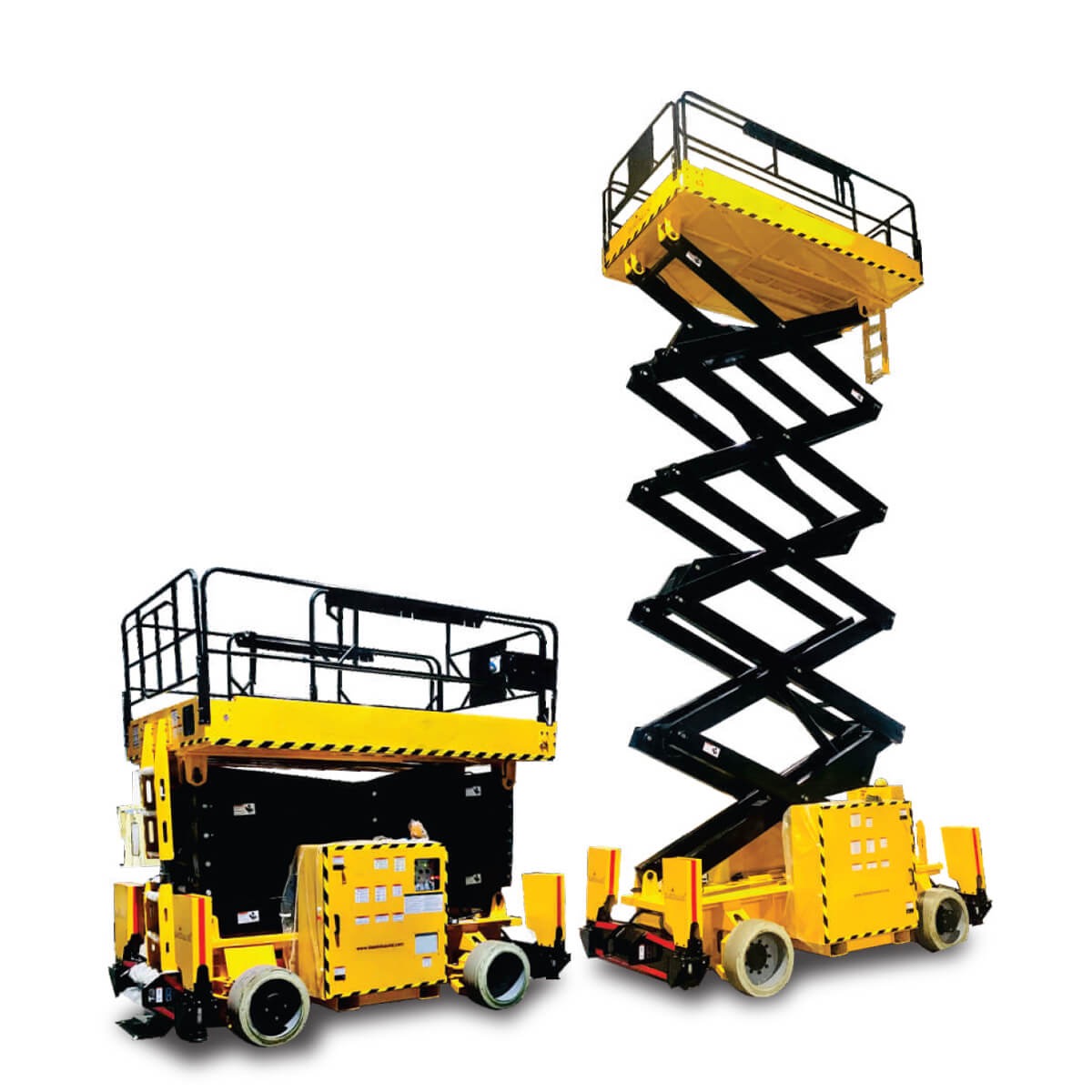
The types of scissor lifts and their classifications in the construction
February 9, 2026
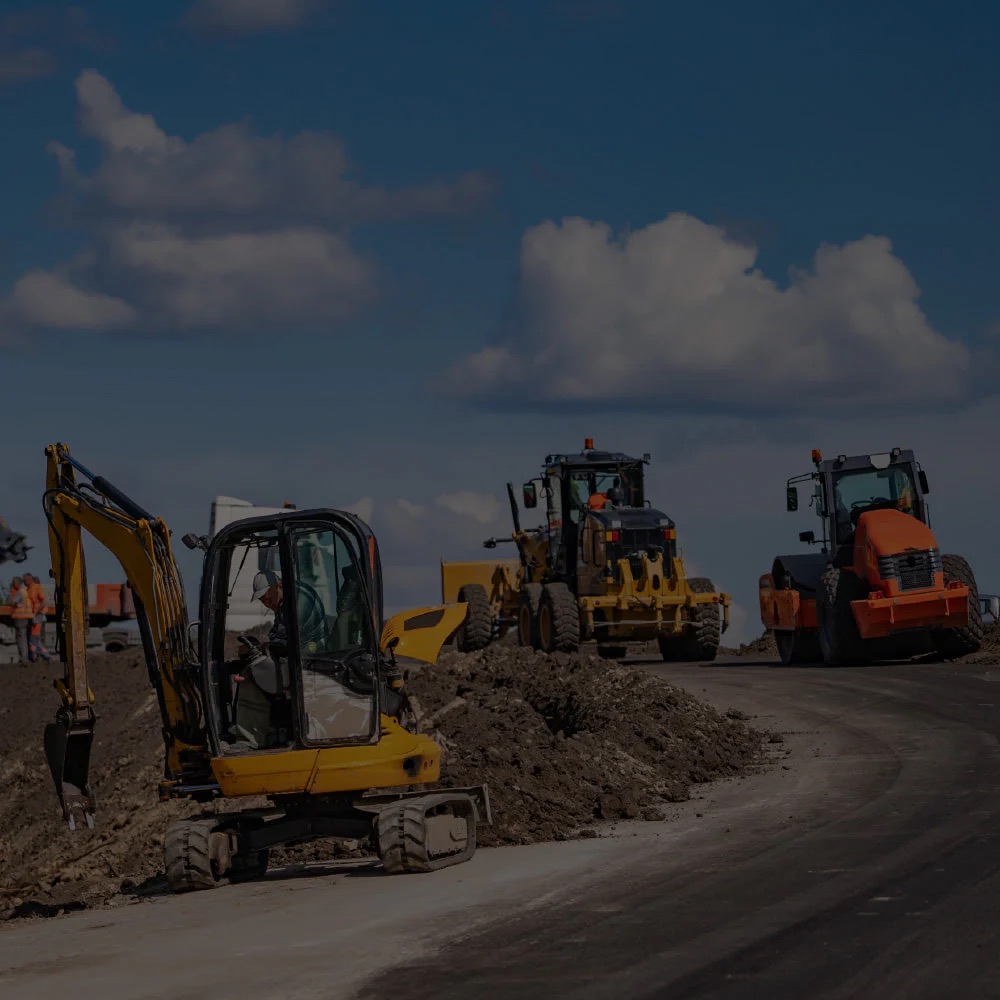
A comparison of the best mini excavator brands (takeuchi, wacker neuso
February 9, 2026
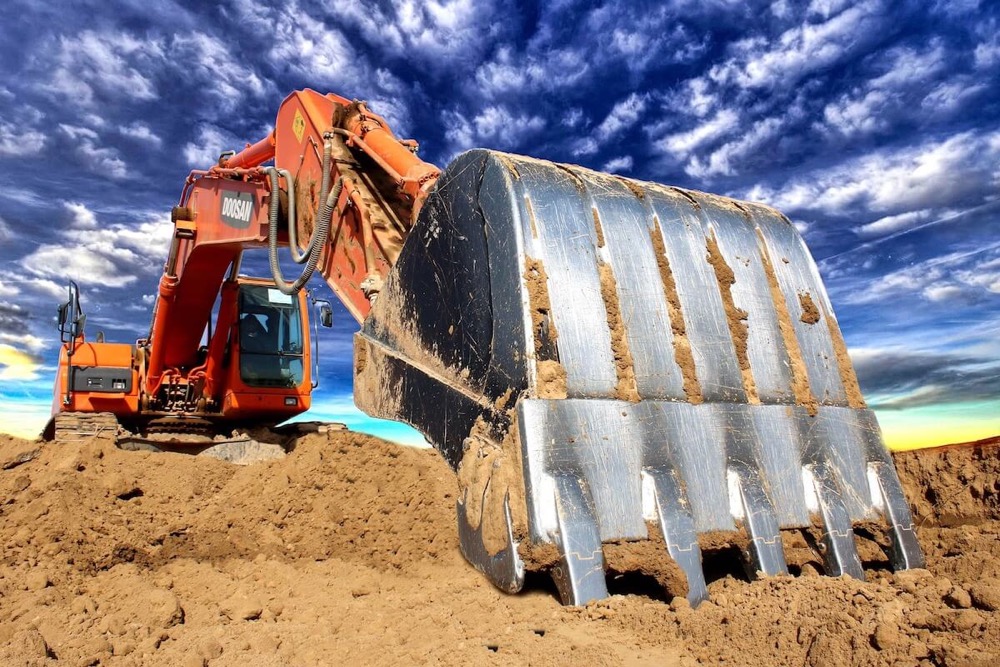
Essential wear protection strategies to prevent excavator bucket damag
February 3, 2026
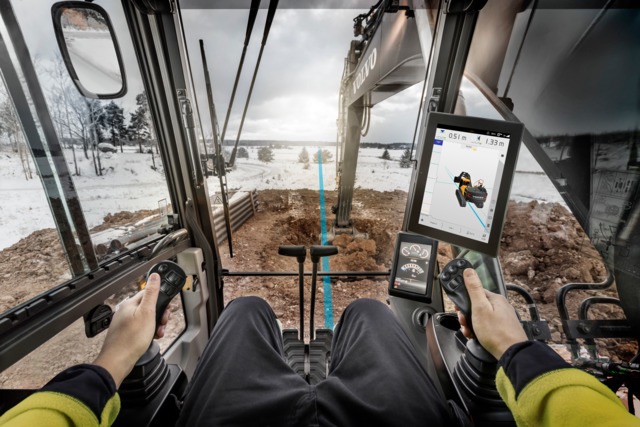
The importance of seat covers for maintaining the interior of a machin
February 3, 2026